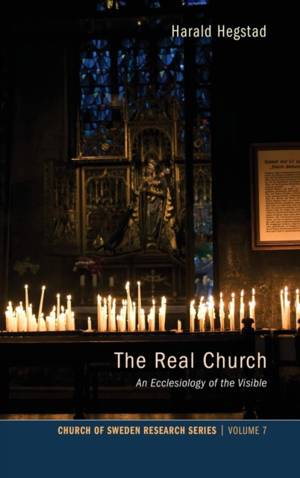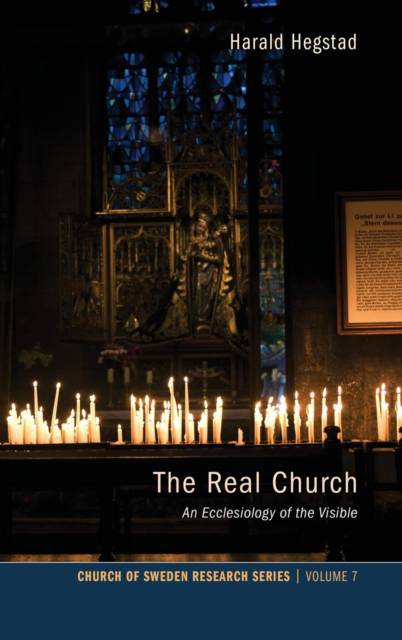
- Retrait gratuit dans votre magasin Club
- 7.000.000 titres dans notre catalogue
- Payer en toute sécurité
- Toujours un magasin près de chez vous
- Retrait gratuit dans votre magasin Club
- 7.000.000 titres dans notre catalogue
- Payer en toute sécurité
- Toujours un magasin près de chez vous
72,45 €
+ 144 points
Format
Description
Description: What does it mean to believe in the church? What is the relationship between the church we believe in and the church we experience? Is there an invisible church that is different from the visible? This book is an argument for an ecclesiology of the visible. The only church, the real church, is a concrete reality made up of people, just like any other fellowship. What distinguishes it as church is the presence of the triune God among those who gather in the name of Jesus, making it a sign and anticipation of the fellowship of the kingdom of God. From this premise Dr. Hegstad analyzes such issues as the relationship between church and world, mission and diakonia, church as fellowship and organization, ministries in the church, worship, and the unity of the church, as well as discussing the relationship between a sociological and a theological understanding of the church. Endorsements: ""Harald Hegstad is one of Norway's most interesting theologians, and I couldn't be more excited that his work is now available in English. Hegstad is one of the very rare thinkers who has both an incredible handle on the theological Christian tradition, as well the acumen to do empirical examination of the contemporary state of the church. . . . We have many books about the empirical state of the church and many more on dogmatic/doctrinal ecclesiologies, but few-to-none that put these two important foci together--and together in such a rich way."" --Andrew Root, Associate Professor of Youth and Family Ministry, Luther Seminary ""This is an ecclesiological masterpiece. Hegstad's multidisciplinary erudition, logical acuity, and, above all, theological wisdom all come into play as he argues--very convincingly--that the church we believe in is not, and cannot be, anything other than the church we live within and experience. A complex-yet-balanced constructive, theological proposal that is a must-read for everyone interested in the church."" --Nicholas M. Healy, Professor of Theology and Religious Studies, St. John's University ""This book reminds us of a strand in Lutheran-Melanchthonian ecclesiologies sometimes forgotten: the concepts of visible church and invisible church are distinctions in ecclesiology not at all aiming at a separation between two churches. Hegstad productively encounters this by means of combining systematic theology and social sciences. The result is a concrete ecclesiology in which non-dogmatic factors become theologically relevant."" --Sven-Erik Brodd, Professor of Ecclesiology, Uppsala University About the Contributor(s): Harald Hegstad is a Norwegian Lutheran theologian. He is Professor of Systematic Theology at MF Norwegian School of Theology, Oslo, Norway. His research in ecclesiology includes empirical studies as well as publications within systematic and practical theology.
Spécifications
Parties prenantes
- Auteur(s) :
- Editeur:
Contenu
- Nombre de pages :
- 258
- Langue:
- Anglais
- Collection :
- Tome:
- n° 7
Caractéristiques
- EAN:
- 9781498263689
- Date de parution :
- 15-02-13
- Format:
- Livre relié
- Format numérique:
- Genaaid
- Dimensions :
- 152 mm x 229 mm
- Poids :
- 512 g







